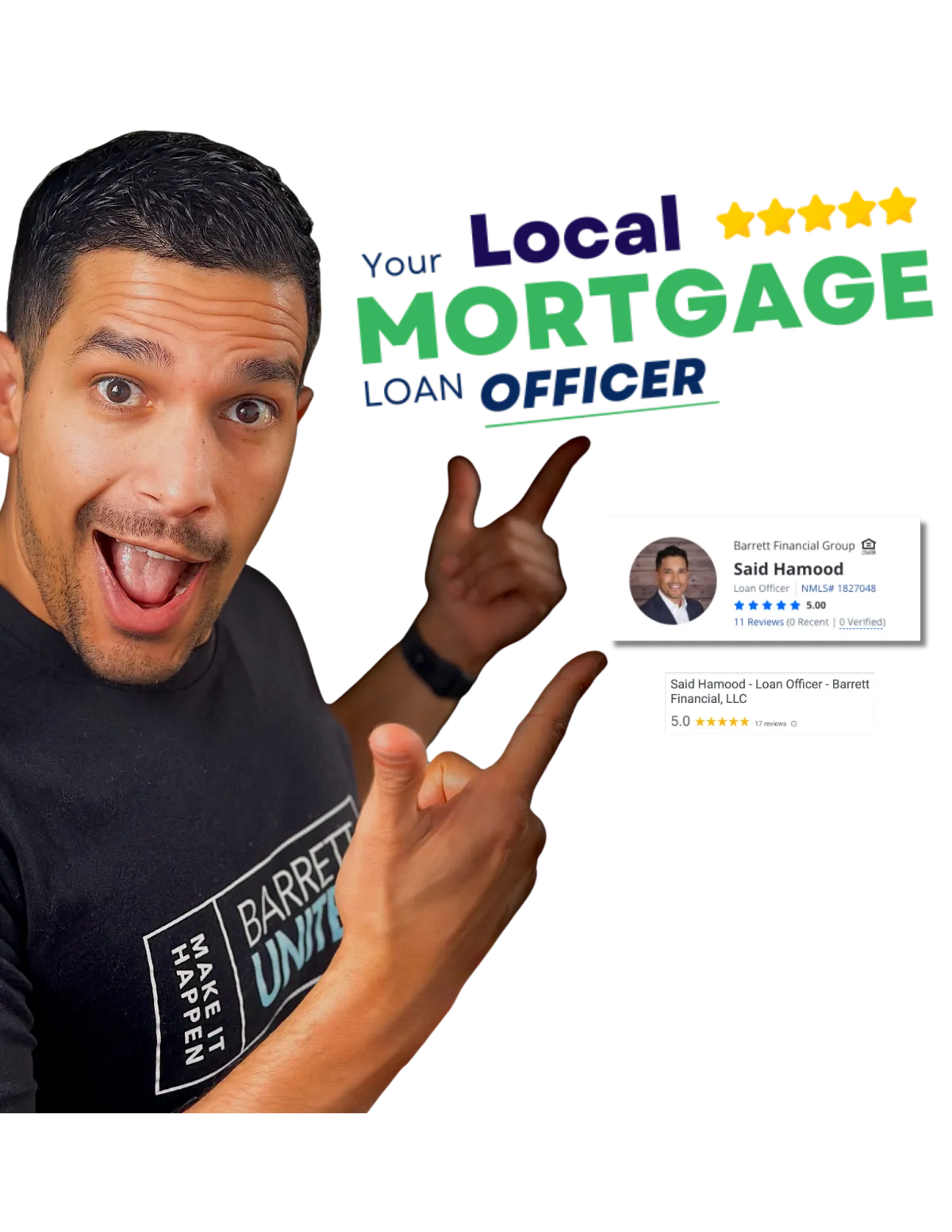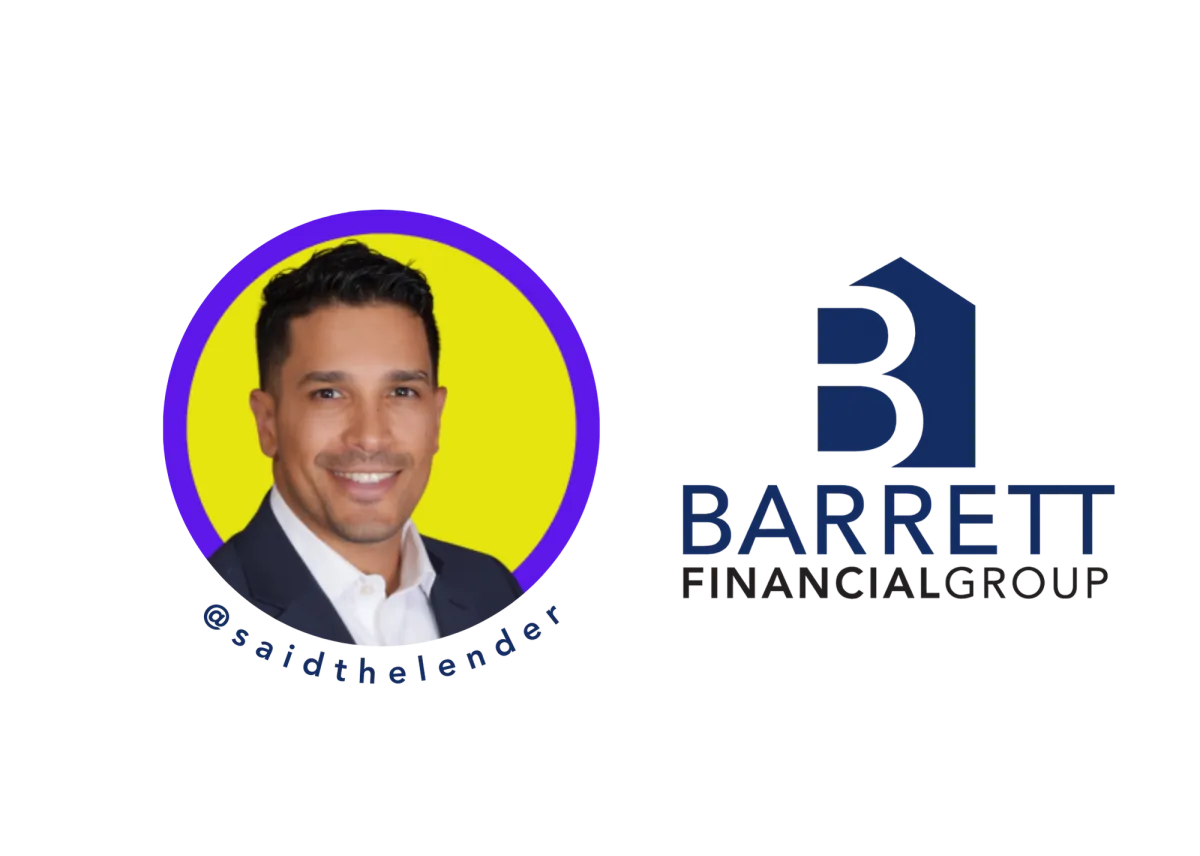
Simplifying Homeownership
See EXACTLY How Much Home You Qualify For Today!

Simplifying Homeownership
See EXACTLY How Much Home You Qualify For Today!
Learning Center

Navigating 2024: A Positive Outlook for the Economy
As we step into the promising terrain of 2024, it's only fitting that we take a moment to assess the economic landscape that awaits us. I've come across a fantastic article from USA Today that succinctly captures the essence of what we can expect in the months ahead. Allow me to distill the key points and share my insights as we embark on this new year full of possibilities.
The article, which you can find here, paints a surprisingly optimistic picture of our post-COVID-19 economy. Contrary to initial projections of an imminent recession, the stock market is thriving, fueled by the growing belief that the Federal Reserve is orchestrating a "soft landing" to curb inflation without plunging us into economic downturn.
The Economic Landscape: A Synopsis
Growth Expectations: Despite an anticipated slowdown in growth, forecasters suggest that 2024 will be a good year overall, building on the successes of 2023. Projections indicate a growth rate of 1.3%, down from the previous year but surpassing earlier estimates.
Fed's Pivot: A significant development comes from the Federal Reserve, signaling an end to rate hikes and a plan for three rate cuts in 2024. This strategic move aims to lower borrowing costs for consumers and businesses, injecting a dose of positivity into the market.
Inflation Insights: The article emphasizes the unexpected and almost unprecedented ease in inflation, with Morgan Stanley predicting a drop in the Fed's preferred core inflation measure to 2.4% by the end of the year.
Job Market and Housing: While job growth is expected to slow, there are still positive signs in various industries. Housing, which faced challenges in 2023 due to high mortgage rates, is poised for a rebound in 2024 as rates fall.
Insights from a Loan Officer's Perspective
As a loan officer based in Washington State, I find these developments particularly intriguing. The Fed's commitment to easing rates and the overall positive economic indicators can have a ripple effect on the lending landscape. Here's my take:
Favorable Borrowing Conditions: With the Fed planning rate cuts, borrowing costs are likely to become more favorable for consumers. Whether you're a first-time homebuyer or considering refinancing, this could be an opportune time to explore your options.
Impact on Homebuyers: The housing market, especially in Seattle, may experience increased activity as falling rates make homeownership more accessible. If you've been contemplating a home purchase, staying informed about these economic shifts could be advantageous.
Caution Amid Optimism: While the outlook is positive, it's essential to approach financial decisions with caution. Economic landscapes can be unpredictable, and as a responsible loan officer, my advice is to stay informed and make decisions aligned with your long-term financial goals.
Conclusion: A Year of Possibilities
As we venture into 2024, there's a sense of optimism and a feeling that this year could be one of possibilities. Whether you're in the real estate market, considering a loan, or simply observing economic trends, staying informed is key. Keep an eye on the developments highlighted in the article, and let's navigate this year together.
Here's to a prosperous and fulfilling 2024!
Connect with me on social media for more updates and discussions.
What is the first step in buying a home?
The first step is understanding your budget and getting pre-approved for a mortgage. This helps you know what you can afford and shows sellers that you're a serious buyer. I can guide you through this process to make sure you're prepared and confident.

How much money do I need for a down payment?
Down payments typically range from 3% to 20% of the home’s purchase price, depending on the type of loan you qualify for. There are also programs for first-time homebuyers that may offer down payment assistance. I can help you explore your options.

What does pre-approval mean, and why is it important?
Pre-approval means a lender has evaluated your financial information and determined the loan amount you're eligible for. It’s crucial because it gives you a clear idea of your budget, helps you compete with other buyers, and speeds up the closing process once you find a home.

What types of loans are available for first-time homebuyers?
There are several loan options, including FHA loans, USDA loans, and conventional loans. The best option for you depends on factors like your credit score, income, and the location of the home. I can help you compare the options and choose the best one for your situation.

How do I know if I qualify for a mortgage?
Lenders look at factors like your credit score, income, debt-to-income ratio, and the amount of money you have for a down payment. The good news is that I work with a range of clients, from those with perfect credit to first-time buyers, to help you find the right path to homeownership.

What are closing costs, and how much should I expect to pay?
Closing costs usually range from 2% to 5% of the home's purchase price and cover fees like appraisals, inspections, and lender charges. I’ll help you understand all the costs involved so there are no surprises at the end of the process.

Can I get a mortgage if I have student loans or other debt?
Yes! Many buyers with student loans or other forms of debt still qualify for a mortgage. Lenders look at your overall financial picture, including your income and debt-to-income ratio. Let’s talk through your situation, and I’ll help you find the best solution.

How long does the home buying process take?
The process typically takes about 21 to 45 days from the time you make an offer to closing. However, this can vary depending on factors like inspections, appraisals, and the lender's processing time. I’ll keep you updated every step of the way so you know what to expect.

What happens if my offer on a home is accepted?
Once your offer is accepted, the next steps include signing a purchase agreement, scheduling inspections, and finalizing your mortgage application. From there, the lender will process your loan, and we'll work together to ensure everything is in place for a smooth closing.

How do I know if I’m ready to buy a home?
If you’re financially stable, have a reliable income, and can afford a down payment and monthly mortgage payments, you might be ready. I’ll help you assess your financial readiness and guide you through the process to ensure you’re making the best decision for your future.

What is an FHA loan?
An FHA loan is a government-backed mortgage designed to help first-time homebuyers and those with less-than-perfect credit. It typically requires a lower down payment (as low as 3.5%) and has more flexible credit requirements, making it an excellent option for those who might not qualify for conventional loans.

What is a VA loan, and who qualifies?
A VA loan is a mortgage loan backed by the U.S. Department of Veterans Affairs, designed for military service members, veterans, and certain members of the National Guard and Reserves. It typically requires no down payment or private mortgage insurance (PMI), making it a great option for those who qualify.

What is a USDA loan?
A USDA loan is a government-backed mortgage offered to homebuyers in rural and suburban areas. It requires no down payment and offers competitive interest rates. To qualify, buyers need to meet income and property location requirements, making it a great option for those looking to buy in rural areas.

What is a conventional loan?
A conventional loan is a mortgage that is not insured or backed by the federal government. These loans usually require a higher credit score and a larger down payment than FHA loans, but they come with more flexible terms and potentially lower mortgage insurance costs if you put down at least 20%.

What is a jumbo loan?
A jumbo loan is a type of mortgage that exceeds the conforming loan limits set by the Federal Housing Finance Agency (FHFA). These loans are typically used for luxury or high-value homes and require stricter credit and income qualifications. They also tend to have higher interest rates due to the larger loan amounts.

What is a fixed-rate mortgage?
A fixed-rate mortgage is a loan with an interest rate that stays the same throughout the life of the loan, typically 15, 20, or 30 years. This provides stability and predictable monthly payments, making it a popular choice for many homebuyers.

What is an adjustable-rate mortgage (ARM)?
An adjustable-rate mortgage (ARM) is a type of loan where the interest rate can change periodically based on market conditions. ARMs typically start with lower rates for the first few years and then adjust. While this can offer lower initial payments, it comes with more risk as rates can increase over time.

What is a renovation loan?
A renovation loan, like the FHA 203(k) loan, allows you to finance both the purchase of a home and the cost of repairs or renovations in one loan. This can be a great option if you want to buy a fixer-upper and make improvements to it, as it allows you to finance the project upfront.


"I educate first-time homebuyers so they can make informed decisions"
Said Hamood - Seattle Mortgage Broker - NMLS#1827048
Said Hamood | NMLS #1827048 | Barrett Financial Group, L.L.C. | NMLS #181106 | 275 E Rivulon Blvd, Suite 200, Gilbert, AZ 85297 | TX view complaint policy at www.barrettfinancial.com/texas-complaint | WA MB-181106 | Equal Housing Opportunity | This is not a commitment to lend. *All loans are subject to credit approval. | mlsconsumeraccess.org/EntityDetails.aspx/COMPANY/181106



